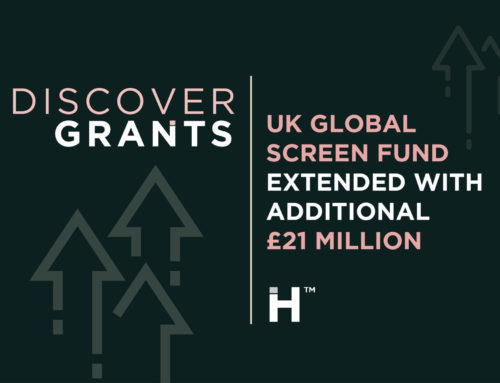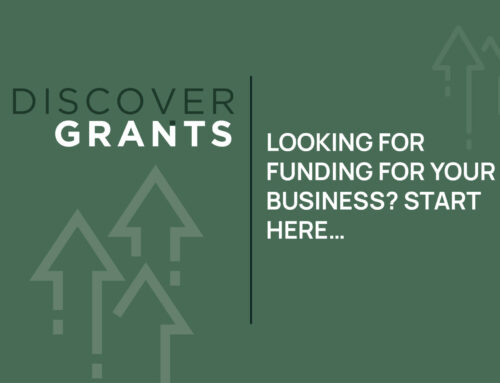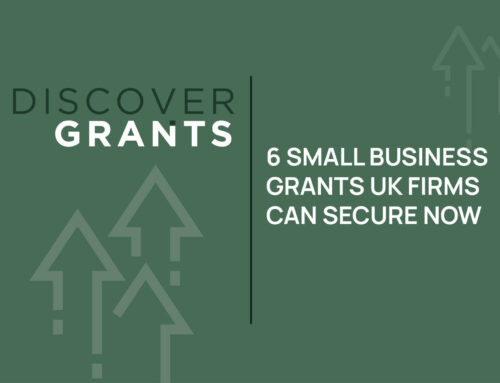Learn what it takes to win grant applications!
Have you ever wondered about how to approach grant applications? The grant funding process can seem overly complicated at times…Fortunately, you’ve found Discover Grants. Here we’re focused on getting you prepared for when it comes to grant applications!
A funder’s guidelines achieve a great deal in communicating what they need for the grant application. Some require you to fill out a form or cover sheets. Others may be less restrictive in their requirements.
Either way, all funders require one thing – a clear, concise response.
With this blog, you’ll learn exactly how to achieve that.
Consider your position for grant funding and decipher the funder’s priorities
Generally, grants work to balance inequality in communities, support specific sections of society, or further a cause, such as sustainability. As the leader of your organisation, you’ll need to figure out the priorities of the funder. Different grants will have different criteria, and some of these could include;
- Your status as a business -Are you a start-up or a small business?
- Are you a young entrepreneur? Are you starting your business under the age of 30?
- Your gender? – Are you a woman-owned business?
- Is your business owned by a member of a minority ethnic group?
- Has your business been impacted by COVID?
- Is your business operating in a deprived area?
All these questions and more are important in assessing your eligibility for grant funding. If the grant is focused on supporting SMEs, highlighting your tenacity as a smaller company will appeal to the funder. Ultimately, your eligibility will depend on how closely your company aligns with the funder’s vision.
Ensure that you meet the criteria
This should be your main concern once you’ve set your sights on the grant. Can you realistically meet the desires of the funders?
Ultimately, check the funder’s guidance on their website. This will give you most of the information you’ll need for your application. Another facet of this will be your team. It’s great if you have the right qualifications and certifications, but what about your team? Do they meet the standard? What evidence can you provide that your team will carry out the aims of the grant?
Is money the main prize?
When you’re researching grants for your organisation, you’ll find some funders provide grants based on professional advice or training. The selling point is that these organisations provide their services for free.
For instance, a grant may offer “£3,000 of professional, customised business growth advice and consultation” if you won the grant. In some cases, this can be even more lucrative than a direct cash award. This is due to its focus on improving all areas of your organisation, instead of your limited investment.
If it offers training, this can be invaluable too. Even if you’re a start-up business in need of cash, training can still play a part in your development.
Avoid too much jargon
Field-specific terms can do wonders for getting the funder onside, but too much can be confusing. You can never assume that the funder is educated in your sector. So, find the balance between conveying capability and avoiding confusion, and the funder will thank you for it. It’s likely that your proposal is one of many grant applications being reviewed by the funding board. So, by balancing jargon with layman’s terms, you’ll hold more of their attention.
What are the differences between charity grants and business grants?
We’ve received this question more times than we can count. To answer this, we always fall back on how the organisations tackle grant applications. Businesses are looking for investment to grow their organisation, capabilities, and profit. Charities, however, are eager for wider coverage of their services.
The charity is focused on redirecting any profit back into its organisation. Due to this, you’ll find that charities are more focused on providing a compelling application, in essence, a story. Whereas businesses (both large and small) will deliver figure-intensive facts that deserve investments from funders.
Your business plan
Never underestimate the importance of a business plan. It provides a real snapshot of your current financial activities, helping allay any financial hesitations the funder may have.
Why do you need a business plan?
A business plan provides that extra level of credibility for the funder. If your company supports the local community, it helps give information on your progress so far. It’s even more important when you’re a start-up as it provides the funder with information about your business ‘mission/purpose’. If this falls in line with the funder, then it’s a fantastic sign of success.
Executive summary
This clues the funder in on your entire proposal succinctly. For instance, if you’re a non-profit, you may state “XXX requests £XXXX for a two-year job training program. Training will cover XXX section of the community in XXX, ensuring that the community will be adequately prepared for employment.”
Make sure you get this part right. It can often spell the doom of grant applications if the executive summary isn’t written properly.
Company overview
This is where you break down the company’s structures, such as ownership and management. It provides evidence to the funder that you’ve thought this through thoroughly. For example, has the company changed hands? What have you done to change the business since then?
Your product/service
What is it that the funder is supporting? You can sell yourself well enough, but can you sell your product/service? This is where you’ll provide an in-depth look into the product/service, and how it offers benefits for the target audience.
You’ll achieve higher favour if you can cater this description to the funder’s ethos. What makes your product or service unique? This is also known as the unique selling point (USP). The clearer your selling point, the more interested funders will be in supporting your organisation.
Market research & strategy
Have you conducted adequate market analysis? What specific problem are you solving for your target audience? How much does this improve their situation? How are you catering to their needs? Have you figured out what influences their purchasing decisions? Take time to further align the market research with the funder’s mission. How large is your market share? Have you discovered any market trends? If so, how have you adapted?
Good market research should inform a great business strategy. What strategies were behind your current prices? Are there any risks within the product/service? How many steps do you have in place to mitigate them? Who are your main competitors? In what ways are they surpassing you? What plans of action do you have in place to mitigate this? How are you promoting your product? Are you utilising direct marketing, advertising, PR, etc?
Financial forecast
In your grant application, you need to confirm to the funders that your business is financially stable. You’ll be able to achieve this through three financial documents:
- Profit and loss statement
- Balance sheet
- Cashflow statement.
These documents will showcase your profits and predicted losses. What could you achieve with the funding? In the case of a non-profit, how many people will this funding directly/indirectly help? It’s important to not be too optimistic when it comes to financial forecasts. The funder wants to know if you have proper fiscal responsibility so providing figures above a realistic level is unhelpful.
CVs of key personnel
This is where your team get to shine. Each CV will add a further layer of credibility to your grant application. They’re an integral part of proving the funder is right in choosing you.
When it comes to business plans, remember these points:
- Focus on what the reader needs to know
- Leave out irrelevant information
- Ensure a high level of grammar.
In summary
So, we’ve done it! We’ve traversed the rough terrain of grant applications. Now you’ve read this blog, we’re confident that you’re ready for your first, second, or third grant application! However, what if you’re still unsure about grant writing? Well not to fear. Discover Grants has you covered…
Our Services
Grant Writing
Our Grant Writing Service is for businesses who want to start applying for grants, but don’t know where to begin. They can also help businesses who have been applying for grants but aren’t seeing success.
Our Grant Writing Consultants have over 60 years of experience in bidding for funding and grants. From start-up business grants to self-employed business grants. They can take care of the whole thing for you – they’ll even submit it on your behalf.
Get in touch to find out how we can help your business grow!
Grant Tracker
You can find this grant and others like it on our Business Grant Tracker. Currently, we have over 1,700 live business grant and funding opportunities. Our team have manually tracked 1,500+ data streams searching for business grant opportunities. Each one is then uploaded to one central system, streamlining the process.
All you need to do to gain access is sign up for free.
Find more helpful tips and advice in our blogs. We cover topics including:
- How a Grant Writing Consultant can help your business
- Innovate UK grants
- Start-up business grants
- Business grants in the UK
- How to apply for a government grant
- Working with Grant Writers
- Bidding for funding
- Council business grants
- Government funding
- Grant Writing help
- And many more.





